
İstanbul Galata Üniversitesi Diş Hekimliği Fakültesi Hastanesi
Pediatric Dentistry (Pedodontics)
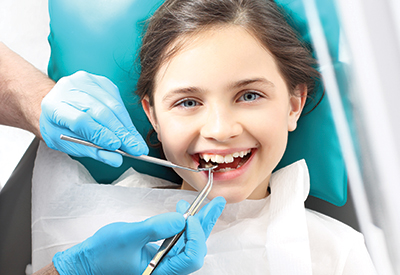
Pedodontics is a branch of dentistry dedicated to children. It aims to establish oral and dental health at an early age by focusing on the preservation, treatment, and development of oral health in children aged 0-15. Treatments in the pedodontics clinic are carried out by specialized dentists who have received special training in communicating with children, alleviating their concerns about dental health, and ensuring their comfort during the treatment process. These dentists are also knowledgeable about the complex developmental processes of children's teeth and oral structures.
HEALTH SERVICES OFFERED IN THE DEPARTMENT:
Raising awareness of oral and dental health in children
Preventive practices against tooth decay
Treatment of primary and permanent tooth decay
Endodontic treatments for primary and permanent teeth
Treatment of oral and dental injuries
Correction of developmental abnormalities in teeth
Early treatment of occlusion disorders
Space maintainers
Pediatric dental prosthetics
Dental treatments for children with special needs or systemic diseases
When does the teething process begin in babies, in what order do teeth erupt, and how can one support during this process?
In general, teething starts between the ages of 6 and 10 months. The lower central incisors erupt first, then the upper central, upper lateral, lower lateral, upper first, lower first, upper canines, lower canines, lower second, and lastly the upper second molars. Symptoms such as diarrhea/constipation, vomiting, nausea, coughing, mild fever observed in children during the teething period are coincidental rather than directly related to teething. However, redness, swelling, itching, and pain in the gums at the eruption site cause discomfort to the baby, leading to irritability, loss of appetite, and sleep disturbances. To alleviate these symptoms, applying a local analgesic ointment 3-4 times a day can provide temporary relief. Additionally, mouth soothers that relieve itching by rubbing against the gums can be used. Liquid mouth soothers that are frozen can also provide relief due to their cooling effect. If there is a fever, antipyretic medications other than aspirin can be administered.
At what age should children be taken to the dentist for a check-up?
Children should be taken to the dentist for a check-up starting from the age of 1 after their first teeth have erupted. Pediatric dentists use this early examination to educate parents about oral hygiene, bottle/pacifier use, and dietary habits to prevent tooth decay. They also assess habits such as thumb sucking and mouth breathing, which may affect jaw and facial development, and recommend measures to address them.
When should children start brushing their teeth, and how should teeth be brushed?
Children can start brushing their teeth after all primary teeth have erupted. Since this age range corresponds to a period when children's fine motor skills develop, they can be taught to hold the toothbrush properly. During the preschool years, the goal should be to instill the habit of brushing rather than focusing on proper technique. Therefore, even rubbing the toothbrush against the teeth will suffice.
Which toothpaste is suitable for children, and is dental floss necessary?
Since there is a risk of swallowing, children should use fluoride-free toothpaste until they can rinse and spit, but fluoride-free toothpaste does not have the cavity-preventing properties, so fluoride toothpaste may be required for children at high risk of cavities. In this case, the amount of toothpaste should be no more than the size of a rice grain. Fluoride toothpaste can be used after the age of 3 if the child can rinse and spit, but it should be ensured that the amount used does not exceed the size of a pea. Dental floss can be used after the eruption of permanent teeth at the age of 6. However, it is necessary to seek assistance from a dentist on how to use it properly.
Does sugar cause tooth decay?
All carbohydrates that are soft and easily adhere to the teeth can cause decay. However, the frequency of carbohydrate intake rather than the quantity consumed has a greater impact on decay formation. Therefore, constant consumption of carbohydrate-rich foods between meals increases the risk of decay. However, instead of forbidding children from eating chocolates, cakes, pastries, pies, and candies due to this reason, it would be more appropriate to teach them to brush their teeth after consuming such foods, or if brushing is not possible, rinsing their mouths with water or drinking a glass of water after eating to remove food debris adhering to their teeth.
What measures can be taken to protect children's teeth during sports activities?
It is recommended to use a mouthguard to prevent children from biting their tongue or cheeks and to absorb the force of impact on the teeth during sports activities.
What should be done if a child's tooth is broken due to an accident?
If a child's tooth is broken in any way, it should be taken to a dentist as soon as possible. Having the broken piece can be beneficial for treatment because depending on the shape and size of the fracture, the dentist may prefer to reattach the broken piece. If the tooth has been knocked out due to trauma, it should be preserved under appropriate conditions and taken to the dentist within 1 hour at the latest. For this purpose, the tooth should be rinsed under slow-running water without touching the root, and then kept in milk or saline until it reaches the dentist. If milk or saline is not available, saliva is also a suitable medium for preserving the tooth. In this case, the tooth can be placed between the child's cheek and teeth or in a cup where the child collects saliva. In any case, seeking dental treatment as soon as possible is important for the success of the treatment.

Oral, Dental, and Maxillofacial Surgery
Oral and maxillofacial surgery, a specialized field situated at the crossroads of dentistry and medicine, deals with various surgeries within or ar
Detaya Git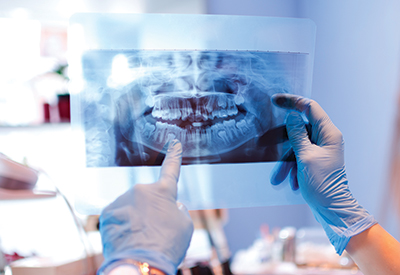
Oral, Dental, and Maxillofacial Radiology
Department of Oral and Maxillofacial Radiology, where intraoral and head-neck region tissues and organs are systematically examined, and all change
Detaya Git
Pediatric Dentistry (Pedodontics)
Pedodontics is a branch of dentistry dedicated to children. It aims to establish oral and dental health at an early age by focusing on the preserva
Detaya Git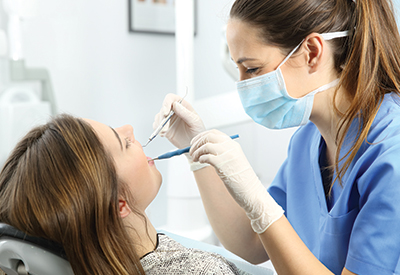
Orthodontics
It is a branch of dentistry that undertakes the diagnosis, treatment and prevention of crowded teeth, deviations in the jaws and facial irregularit
Detaya Git
Endodontics
The diagnosis, treatment, and prevention of illnesses and injuries affecting the dental pulp and adjacent tissues are the main goals of the special
Detaya Git
Prosthetic Dental Treatment
It is the branch of dentistry that deals with the identification, planning, diagnosis, rehabilitation, and upkeep of patients' comfort,
Detaya Git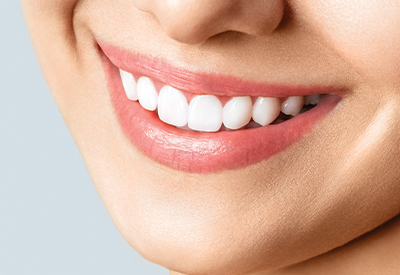
Restorative Dental Treatment
Restorative Dentistry is the department that aims to repair material losses in dental hard tissues caused by caries, abrasions, or fracture
Detaya Git
Periodontology
Periodontology is a branch of dentistry that examines the tissues surrounding teeth and dental implants (gums, jawbone, etc.), deals with the diagn
Detaya Git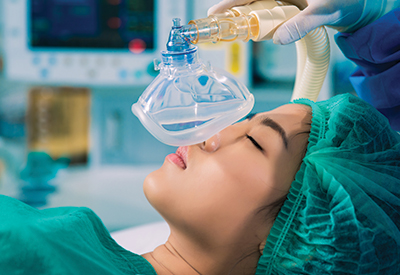
Anesthesiology and Reanimation
Istanbul Galata University Dental Hospital has a fully equipped operating room where anesthesia and reanimation can be implemented. This procedure
Detaya Git
